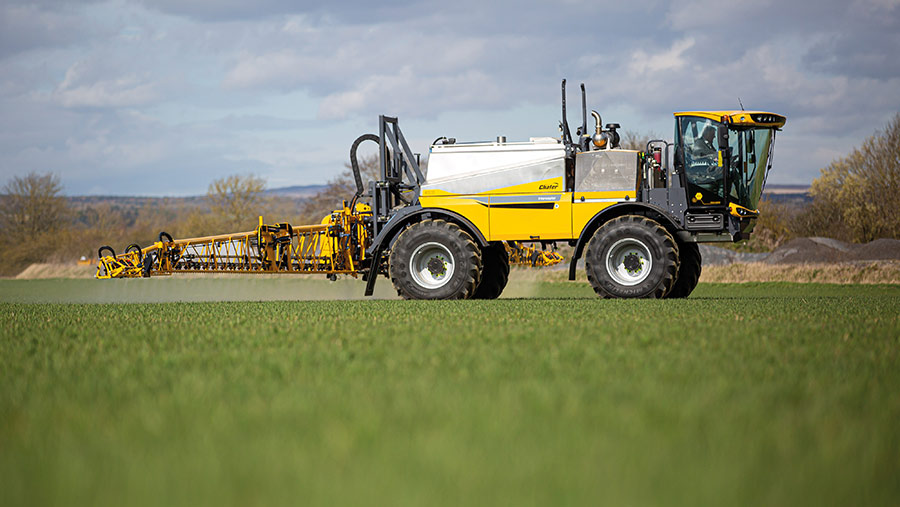How £1.4m research project hopes to tackle blackgrass
 © Bosch
© Bosch A team of experts is looking to use precision farming technology and artificial intelligence to tackle costly blackgrass infestations on UK farms.
Blackgrass is a weed that inhibits the growth of wheat crops and is estimated to be responsible for annual losses of up to 800,000t, with associated economic losses of about £400m.
See also: Why brome is a rising problem when tackling blackgrass
The team hopes to reduce these losses with the help of a £1.45m grant from Defra and innovation agency Innovate UK, under the Farming Innovation Programme – Small R&D Partnership Projects.
Bosch is the lead partner in the project, which comprises recognised experts from BASF Digital Farming, Chafer Machinery and Rothamsted Research. Each partner brings unique expertise.
The German company has expertise in sensor and software technologies and will steer the project in collaboration with digital agriculture specialists BASF Digital Farming and sprayer manufacturer Chafer Machinery.
They will be supported and guided by the input of renowned experts in blackgrass from Rothamsted Research.
Rothamsted Research ecologist David Comont says: “Developing “smarter” systems which can automatically monitor and more precisely spray this weed has the potential to maximise control, while reducing both herbicide use and costs to farmers.”
Technical details
Using the Bosch Smart Spraying camera and software, Chafer will design innovative boom sprayers to detect, identify and map blackgrass at different growth stages within cereal crops across a farm. The smart sprayer technology will be tested on commercial farms selected from the Rothamsted Black-Grass Research Initiative (BGRI).
Agronomists from Rothamsted will label the images and will support Bosch in training algorithms to recognise the weed in cereal crops. This information is then processed and analysed by BASF Digital Farming and delivered to its advanced Xarvio Digital Farming Solutions crop optimisation platform.
In the platform, the information will be used to map infield populations to support the development of integrated weed management plans for targeted blackgrass control.
Overall, the persistent problem of blackgrass should reduce in severity and the ambition is, with enhanced mapping, to improve sustainable blackgrass management programmes.
Additionally, beside a superior performance in blackgrass control, the project could result in reduced herbicide volumes sprayed in-field. This would minimise unintended direct consequences on other organisms and reduce the potential for leaching into other vulnerable ecosystems, such as waterways.
The funding was awarded as part of Defra’s Farming Innovation Programme and the UKRI Transforming Food Production challenge.

